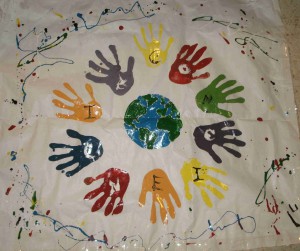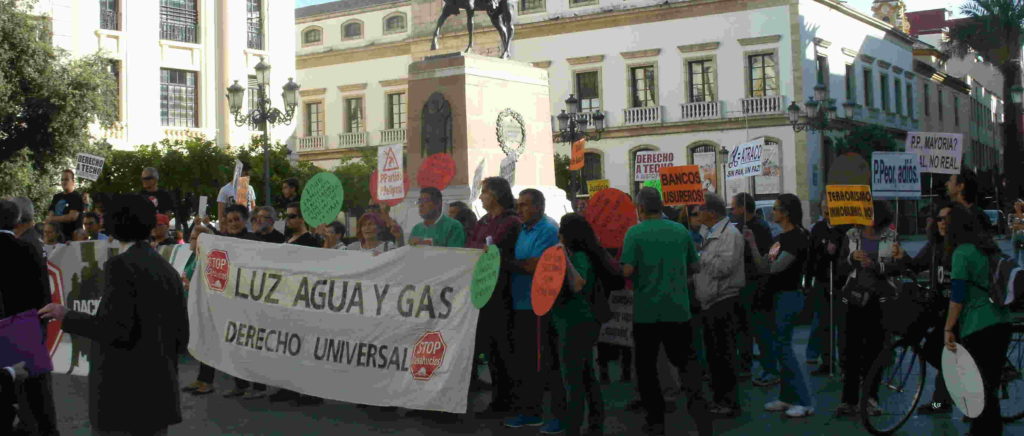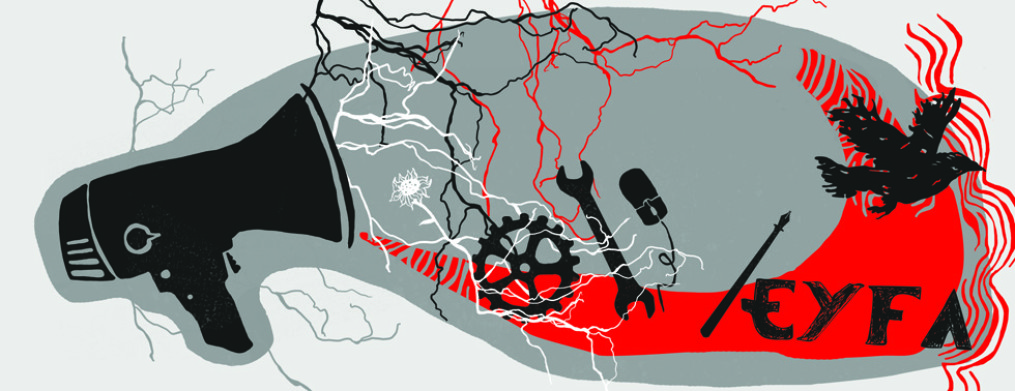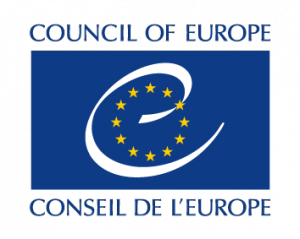20th to 27th October 2014
Córdoba, Spain
 The youth meeting “Taking our lives back: Community Organising against exclusion and precarity” took place in Cordoba, Spain between the 20th and 27th October 2014 and brought together 22 young housing activists from different countries in Europe. The main theme of the youth meeting was “Organising the Community – from exclusion and precarity towards alternative ways out of the crisis”.
The youth meeting “Taking our lives back: Community Organising against exclusion and precarity” took place in Cordoba, Spain between the 20th and 27th October 2014 and brought together 22 young housing activists from different countries in Europe. The main theme of the youth meeting was “Organising the Community – from exclusion and precarity towards alternative ways out of the crisis”.
What happened?
During the project the participants shared and develop knowledge and practical skills to combat exclusion and precarity as well as to self-organise alternative ways out of the crisis within the housing movement.
Between the 20th and 27th experienced trainers from our network guided the group through the activity. Mutiple sessions where dedicated to getting to know each other as well as the context of each groups and their organisational structure. Special attention was paid during the Workshops to internal group processes, as a tool to build sustainable alternatives. A lot of exchange between the groups happened and two case studies prepared by participants beforehand where presented.
 The youth gathering started right before the Transnational Eviction Resistance Meeting (ENTRAD 24 th – 26 th organized by the local Cordoba group). The young people had the opportunity to participate in some sessions together with anti-eviction groups across Europe. On the last day of the the participants took part in a public action of the local group that happened in front of the city hall of Cordoba.
The youth gathering started right before the Transnational Eviction Resistance Meeting (ENTRAD 24 th – 26 th organized by the local Cordoba group). The young people had the opportunity to participate in some sessions together with anti-eviction groups across Europe. On the last day of the the participants took part in a public action of the local group that happened in front of the city hall of Cordoba.
Objectives
The main objective was to bring together young community activist from different countries to develop a common understanding of ‘community organising’ and ‘building sustainable alternatives’ for social and ecological justice. With this project we wanted to first develop participant’s skills needed to ‘develop and maintain community lead campaigns and projects’ and ‘strategise and plan for positive social change’. Second we aimed to support the development of local/regional community campaigns and projects initiated by young people, especially in south, east and southeast Europe, by encouraging them to share their skills through non-formal education.
Outcomes
As a result a deeper understanding of the importance of the current economic crisis as a process that affects people locally was developed by and between the participants. The young people participated in workshops and got to know the specific challenges that community organizing groups face. But they also got to know tools and ways to fight precarity and exclusion on the local level.
On the other hand their inputs and points of views about specific needs they have within the community was an enrichment for the rest of the group and of great inspiration for the local organising team. The preparation was intense and a lot of engagement was required from the team. We consider this event a great success, especially concerning the (hopefully long-term) impact on the young participants and on the communities of origin.
Support
This project was made possible with the financial support of the Council of Europe (European Youth Foundation):

